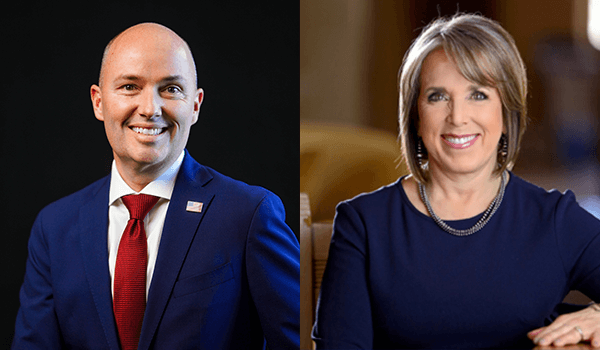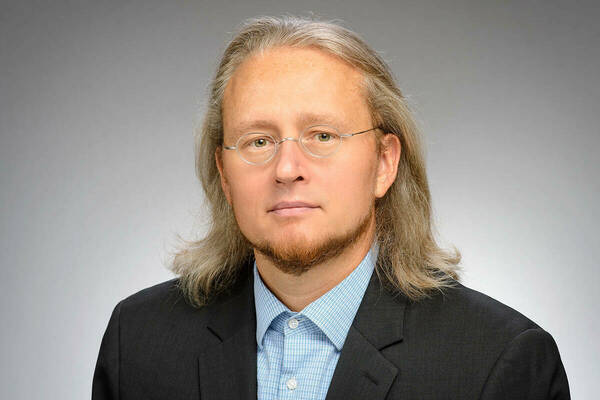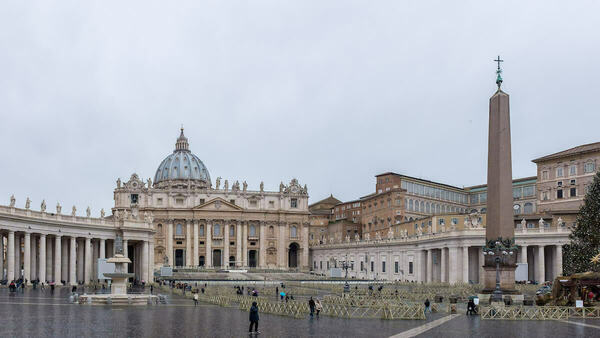Notre Dame marks another year of unprecedented research success
During the 2024 fiscal year, researchers at the University of Notre Dame submitted 1,310 proposals for external research funding for a total amount of $1.016 billion — the first time the University has surpassed the billion-dollar mark for proposals. In addition, the University received 829 separate awards — the largest number on record. With $223 million in total funding, these awards propelled the University past the $200 million mark for the fourth straight year.
“I want to extend my congratulations to the faculty, students and staff who have dedicated themselves to the research enterprise of the University. This year’s successes are the tangible result of their hard work,” said Jeffrey F. Rhoads, vice president for research and professor in the Department of Aerospace and Mechanical Engineering.
“Proposals, awards and total dollar amounts matter,” Rhoads said, “but only as an imperfect measure of our progress toward fulfilling our mission to use our research and scholarship to transform lives for the better, both here in our local community and in the growing list of locations around the world where our faculty, staff, postdoctoral scholars and students are having an impact.”
Below are some of the most significant research awards to the University’s colleges and schools:
Helping to build the ‘Silicon Prairie’
Researchers in Notre Dame’s College of Engineering received new funding as part of the CHIPS and Science Act to support the on-shoring of semiconductor manufacturing. This funding makes University facilities and resources available to help in the national “lab-to-fab” effort.
Advancing technology for quantum computing
A grant from the Army Research Office will allow researchers in the College of Science to conduct quantum computing research. The researchers will design and fabricate new circuits that mitigate or eliminate “trapped flux,” a significant obstacle affecting the performance of supercomputing circuits.
Meeting challenges facing humanity
Scholars in the College of Arts and Letters continued the college’s long record of success in winning prestigious grants in the humanities. The past year’s highlights included three faculty members receiving 2024 Guggenheim Fellowships in recognition of their career achievements and exceptional promise.
Pursuing justice for the wrongly convicted
Notre Dame Law School’s Exoneration Justice Clinic received a grant from the Mexican Ministry of Foreign Affairs to administer a program for the defense of Mexican nationals in criminal matters in the United States. The clinic has an established record of success that includes the recent exoneration of a client who spent 14 years in prison for a crime he did not commit.
Partnering for peace in the Philippines
Building on the success of its Barometer Initiative project in Colombia, the Joan B. Kroc Institute for International Peace Studies in the Keough School of Global Affairs has expanded its Peace Accords Matrix (PAM) program with funding from the U.S. Department of State. PAM Mindanao supports and accompanies the people of the Philippines in their peacebuilding process using PAM’s Comprehensive Peace Agreements verification and monitoring methodology.
Developing the next generation of sustainable building materials and practices
In the School of Architecture, a grant from the National Science Foundation will allow researchers to develop an integrated ecological-technological framework and create a dashboard to visualize the embodied carbon emission and related environmental impact from the building stock in the United States at the ZIP code level.
Educating ethical business leaders
In the Mendoza College of Business, new funding from the Lynde and Harry Bradley Foundation will help support the undergraduate Business Honors Program. The program will enable students to investigate the moral purpose of business and apply Catholic social thought in today’s business world.
The largest portion of the new funding — more than $134 million — came from federal agencies. The largest single sponsor was the National Science Foundation, which contributed over $46 million to research at Notre Dame. Another $23 million came from private foundations, while $20 million came from industry partners, and the remainder came from other non-federal sources.
In addition to increasing its number of funded projects, the University expanded its global footprint. Of the new funding, 173 awards will support international research in 67 countries around the world.
Rhoads said, “We deeply appreciate the support of the agencies, foundations, industry partners and others who have joined forces with our researchers to share in our vision for being a powerful means for doing good in the world.”
To explore more about the University’s research funding and awards, including historical trends and current activity, visit https://research.nd.edu/about/facts-figures/.
Contact: Jessica Sieff, associate director of media relations, 574-631-3933, jsieff@nd.edu
Latest ND NewsWire
- Notre Dame Democracy Initiative hosts bipartisan conversation with Western state governorsTwo Western state governors known to work across the aisle on policy issues such as water, housing and energy will visit the University of Notre Dame for a fireside chat about how Western state pragmatism can serve as a model for the country to overcome polarization.
- In new research, Roy Scranton explores climate change and the limits of human progressIn his most recent book, “Impasse: Climate Change and the Limits of Progress,” Scranton, an associate professor of English, defines the impasse he sees as “not only political and institutional, but cognitive, existential and narrative” and asserts that the only path forward is through embracing what he terms ethical pessimism. “A lot of people confuse pessimism with nihilism, apathy and despair,” Scranton said. “But pessimism is actually about recognizing our limits, letting go of unrealistic goals, finding solidarity in the fact of human suffering and doing what you can now, not in some utopian future.
- Notre Dame MBA launches deferred admission programThe Notre Dame MBA Deferred Admission Program allows candidates with little or no work experience, including college seniors, to secure admission before reaching the recommended three years of work experience to enroll.
- ‘Prebunking’ false election claims may boost trust in electionsIn recent years, democracies worldwide have seen a growing erosion of trust in election outcomes and institutions, driven in part by fears of widespread fraud. New Notre Dame research finds that “prebunking” — providing accurate information before false claims spread — boosts trust in elections more effectively than traditional fact-checking.
- ND experts on the canonization of Carlo AcutisAs the Church awaits the ceremony in St. Peter’s Square, where Pope Leo XIV will formally declare Acutis a saint, University of Notre Dame experts Kathleen Sprows Cummings, Brett Robinson and Timothy O’Malley reflect on his life and his path to sainthood.
- MBA student and alumnus to take part in Fighting Irish flyoverNotre Dame MBA student Maximo Navarro takes flight for the Fighting Irish football season opener.













